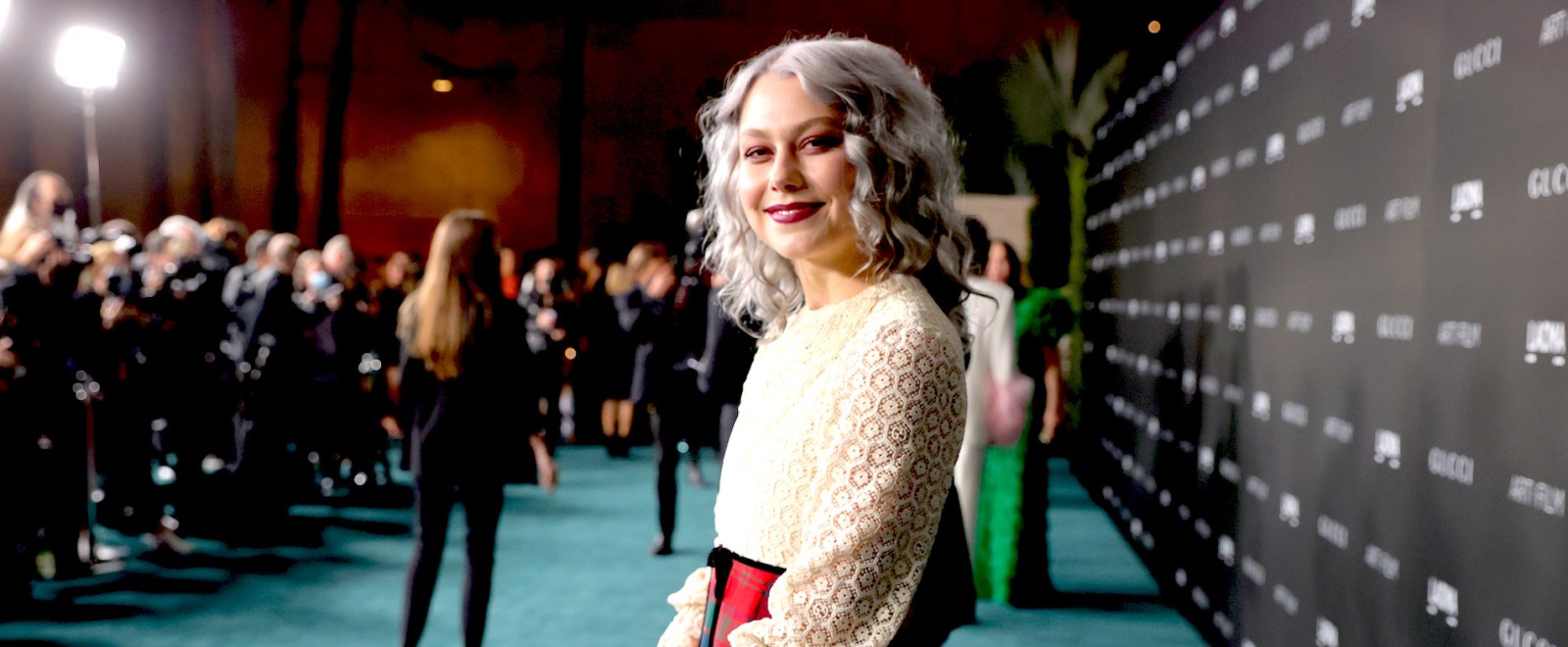An enduring element of Phoebe Bridgers’ web presence for years now has been her Twitter banner image, which is made up of two photos of her wearing a Bon Iver shirt and emotionally holding vinyl copies of Bon Iver’s For Emma, Forever Ago and Bon Iver, Bon Iver. She’s been using that image for a while: an archived version of Bridgers’ Twitter profile from April 2015 features the same visual front and center.
Now, Bon Iver is in the midst of celebrating the tenth anniversary of Bon Iver, Bon Iver, and Justin Vernon recruited Phoebe Bridgers to write an essay for the new reissue of the album. It’s a touching essay, in which Bridgers recounts personal stories connected to her experience with the album. She ends the essay by detailing her recent experience of listening to the album front-to-back for the first time in years:
“Three songs in, it is hard to focus on the road because you are crying. In the delicate balance of contentment and nostalgia and depleted serotonin, you remember all the reasons you love this album; the way it amplifies whatever feelings are already there. When you were seventeen, it was heartbreak, horniness, fear, an avalanche of yearning. But here, now — the landscape slipping past your windows, the lyrics folding into the music, you seeing yourself singing, and singing loud — you are happy, you are weeping, you are moving fast.”
Read Bridgers’ full essay below (via Stereogum).
“You had such a big crush on that girl from camp you couldn’t even look at her. But you knew a song she didn’t, so when she sat next to you on the bus you did something you would eventually learn to hate: the thing where you play a song for someone while staring at them, insisting with your eyes that they connect with it deeply and upon first listen. Men would later do this to you with The Hold Steady and Smog and Bright Eyes and Feist and Elliott Smith. But you were inventing yourself back then on the bus with the girl from camp. So you played ‘Brackett, WI.’
She closed her eyes. You liked the way you looked with her, one earbud each. You looked out the window. You imagined everyone on the bus looking at you looking out the window. You imagined the girl from camp lying on her bed at home, listening to this song and thinking of you. But then, when you turned back to her, her mouth was open. She was asleep. The crush immediately evaporated. You felt superior, sophisticated. You were somewhere else.
A few painful summers later, the first person you ever slept with went to band camp and ghosted you. You dyed your bleached hair pink, then red, then black, then bleached it again until it came out in clumps every time you showered. You shaved every inch of your body in the shower, then greased yourself up with pink baby lotion so you’d melt in the sun like a prayer candle on a windowsill. You got addicted to Dexedrine. You did not know where Wisconsin was. You turned 17.
The second Bon Iver record came out. It did not sound the way you expected. It was massive, sprawling, unbelievably complex — The Beach Boys on opiates. You starfished on your rocket sheets with your headphones turned all the way up. ‘Towers’ was your first favorite song. You had a formula where you would listen to it three times, then listen to three other songs to cleanse your palette before listening to it again. You put on ‘Holocene’ if you wanted to feel like a main character; ‘Wash’ if you wanted to take a walk and make everything you looked at feel sad. You read about the album’s lyrical themes, cities like Perth and Portland, and how the significance we put on place is really just about people and the passage of time. You could count the times you’d left California on your thumbs. It didn’t matter.
Now you know where Wisconsin is, and you’ve even been a few times. An Eau Claire local once told you to check out the Dairy Queen in town because they have a secret menu. You thought about going but you didn’t. (You can go back later. You can always go back later.)
When you are asked to write about Bon Iver, Bon Iver you haven’t listened to it all the way through since you were a teenager. Records can take you to where you were–who you were-when you first listened to them; you’re scared to go back. But it is one of your favorite albums in the way you can only have favorite albums when you are a teenager; so, ten years after hearing these songs for the first time, two days after taking MDMA, going eighty on the highway next to someone you love who loves you back, you put it on. There are green hills with bright yellow flowers. There is no drought; there are sheep.
Three songs in, it is hard to focus on the road because you are crying. In the delicate balance of contentment and nostalgia and depleted serotonin, you remember all the reasons you love this album; the way it amplifies whatever feelings are already there. When you were seventeen, it was heartbreak, horniness, fear, an avalanche of yearning. But here, now-the landscape slipping past your windows, the lyrics folding into the music, you seeing yourself singing, and singing loud — you are happy, you are weeping, you are moving fast.
Phoebe Bridgers,
2021.”







